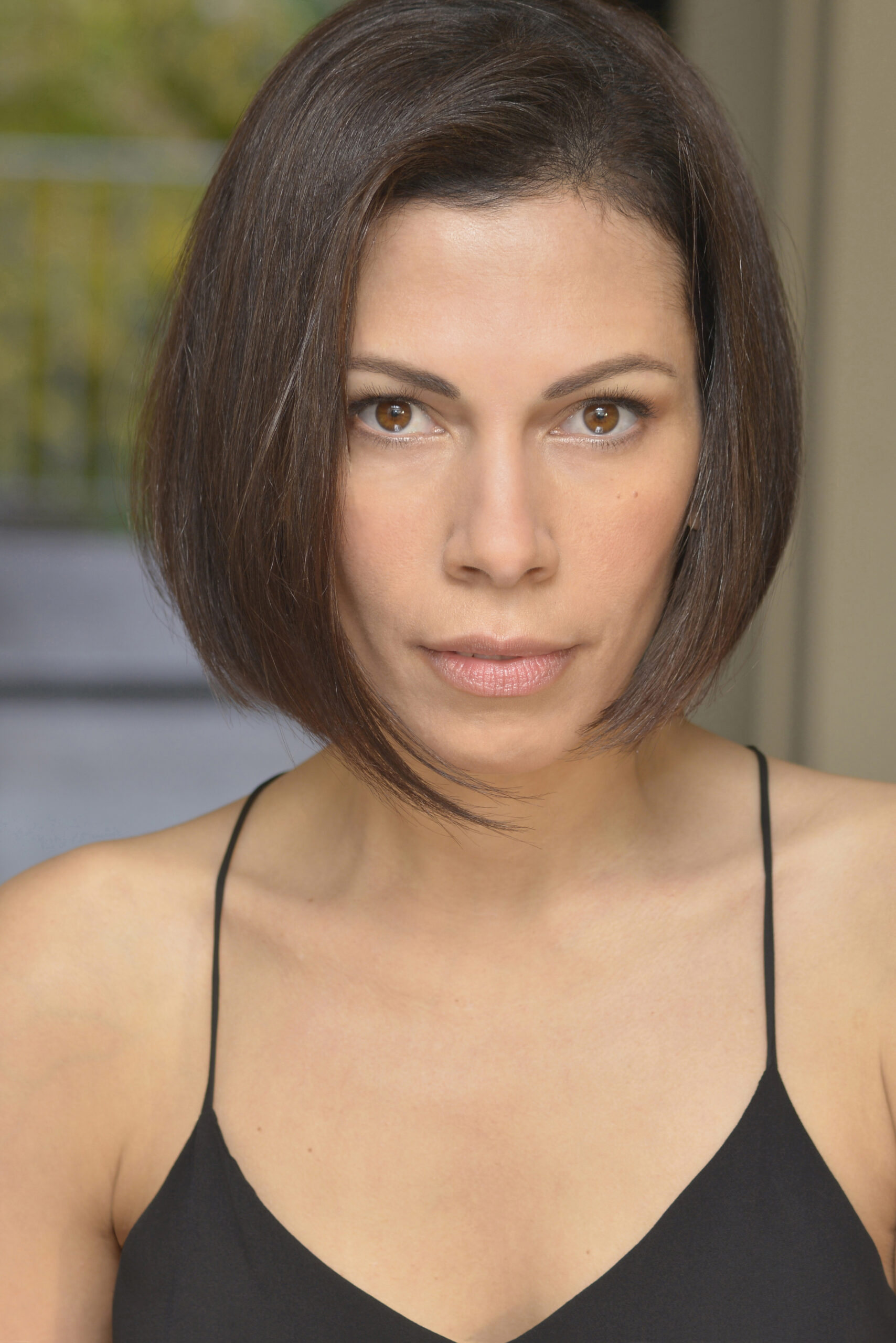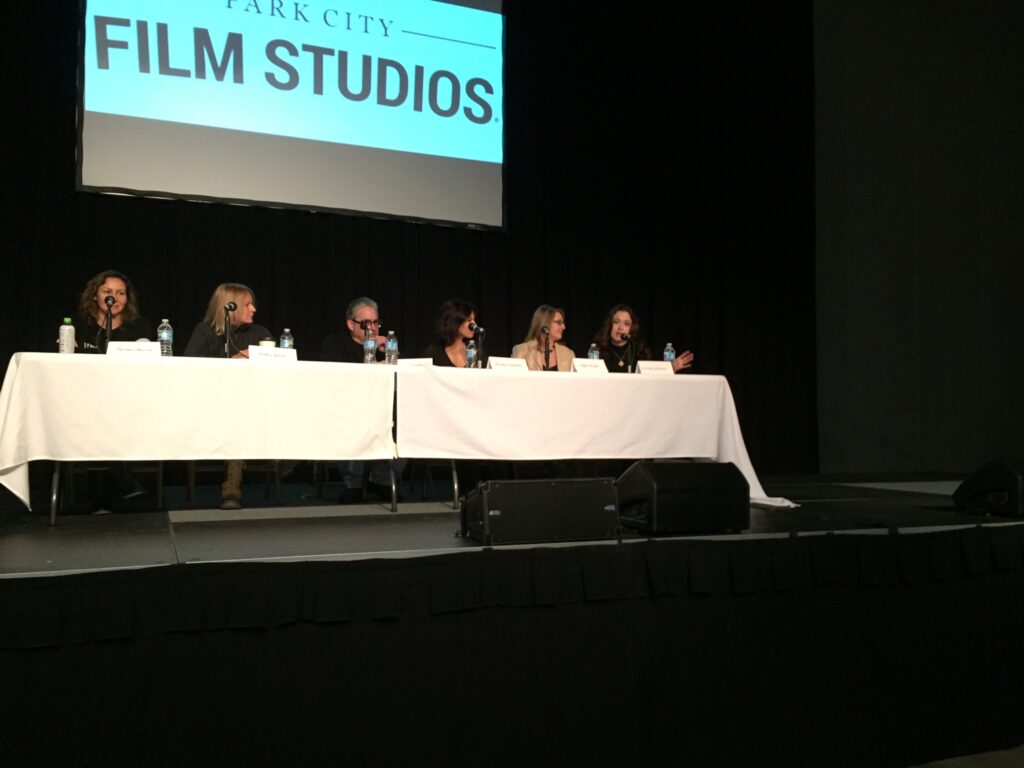 Born in Bahia, Brazil, Daniela Lavender has been training and pursuing the arts since the age of eight years old. She began by exploring ballet, jazz, contemporary dance, and eventually stepped into acting and the performing arts. Her theatre credits include British Shakespeare company production of “A Midsummer Night’s Dream,” playing Hippolyta and Titania and a one woman show, “A Woman Alone” written by Dario Fo. From there she went on to appear in film and TV series, including the independent film “Emotional Backgammon,” where she was awarded Best Actress at the Denver Film Festival.
Born in Bahia, Brazil, Daniela Lavender has been training and pursuing the arts since the age of eight years old. She began by exploring ballet, jazz, contemporary dance, and eventually stepped into acting and the performing arts. Her theatre credits include British Shakespeare company production of “A Midsummer Night’s Dream,” playing Hippolyta and Titania and a one woman show, “A Woman Alone” written by Dario Fo. From there she went on to appear in film and TV series, including the independent film “Emotional Backgammon,” where she was awarded Best Actress at the Denver Film Festival.
Lavender is also taking on the role of producer, and currently attends the Producing School at New York Film Academy Los Angeles. As Vice President of Lavender Pictures Productions, which she co-owns with her husband Sir Ben Kingsley, her company has produced “A Birder’s Guide to Everything,” which premiered at the Tribeca Film Festival 2013 and was awarded the Heineken first runner up audience award; “Learning to Drive” directed by Isabel Coxiet, which won the Audience Award at Provincetown Film festival; “An Ordinary Man” directed by Brad Silberling; and “Backstabbing for Beginners” directed by Per Fly, which will be released in 2017. Lavender Pictures is currently developing “Cousin Bazilio,” a 6 part mini-series; “TAJ,” an 8 part mini-series; and “Jutland,” a futuristic war drama.
Recently, Lavender was invited to take part in a panel at the the Sundance Film Festival, which focused on Women in Film. We asked her about her involvement in the panel and her career.
Can you tell us about your experience at this year’s Sundance?
I much preferred my second visit to Sundance because I felt empowered. On my first visit I accompanied my husband on his press junket, so I only saw one aspect of Sundance; through an actor’s point of view and someone accompanying an actor.
This time I went with a group of producers and filmmakers and Sundance was a different experience. I had been invited to participate in the ‘Women in Film’ panel and so I had a function that I was excited about.
As I was there on my own, people didn’t know anything about me apart from the fact that I had a production company and was taking part in the panel. No one googled me — we didn’t google each other! So I felt that my first interactions with people were truly fresh; uncluttered by the projections that research and misinformation can so often bring.
But what was most important for me, what made my stay so enjoyable and productive, was that I went empowered by knowledge. For the first time, instead of thinking of how I’m perceived or whether I’m being accepted or all these ego driven thoughts we invariably conjure up in situations like this, I was able to listen because I had knowledge; I knew why I was there and what I had to offer. That knowledge had been enhanced by my joining the New York Film Academy in Los Angeles.

How did you become involved with the “Women in Film” panel?
I met an entertainment lawyer who had been running panels at Sundance and Cannes for the past 15 years. He was a guest speaker at NYFA and my class was fortunate to attend his talk. This was part of the producer’s department programs. After class I contacted him with a question. We talked and, as by then I had been at NYFA for three months and had acquired knowledge, our talk was interesting. He felt that his women’s panel could benefit from what I had to say, so off I went.
What do you believe was the most important topic of the panel?
This year Sundance happened at the time of a controversial election and it became very clear to me that the most important topic of the event was knowledge. Emotions were running high and it became evident that if you don’t have knowledge to guide your emotions, passions, even love, will hinder your goals, your effectiveness.
The more I listened to the women around me the more I was certain that what made them succeed wasn’t that they aggressively fought or protested for their place (even though some might believe so). All the successful women I came across were successful because they were outstanding at what they did. Yes, the fight for women’s rights is important as women have been discriminated against in the past, and still have room to progress until they are treated equally in every area of society, but nowadays we all have opportunities, and the most powerful way to succeed is to be great at what you do. To be the most efficient person in the room. Period. Because great skill is irresistible. Many producers and filmmakers I saw had projects they were passionate about. ‘My passion project’ as’ we say… But then distributers turn to them and say ‘well, but it’s not mine.’ One needs more than passion.
Do you feel there has been any progress over the last few years in terms of equality for women in film?
Yes there has been. I still wish to see more female directors. I’m looking for one right now for our TV miniseries, but there has been. The head of the panel mentioned that in his last film 90% of his crew were women. That wouldn’t have happened in the past. I see the world as a much more competitive arena today. The standards are higher, and I believe that isn’t so much about gender or race, I believe that it’s about who is the best at what they do. Who has work ethic versus who is lazy.
When you ‘play out there with the big guns’ we see fewer nice people and more effective people. To me real kindness is to strive to be good at what you commit yourself to do, and I’m learning that. How good and ambitious you are at your job in the film business is crucial, because the film is like a chain and if one link is weak the film will suffer.
So the weak link has no place. The one who wants to be nice and not do the work has to go. And the generous ones, the ones who give themselves to the job, the ones who care, they will have a great chance out there if that is their destiny. So for women (as for everyone else), these are great times.
Aside from producing. You’re also an actress. As an actress in today’s world, what would be your ideal role?
My ideal role would be a revolutionary social worker with a military background. This woman would restructure the foster care system and children wouldn’t be left in the care of the abusers. This woman would be a strong, lean machine, intelligent and have zero tolerance for child abuse. She would also operate undercover to rescue victims of child trafficking. She would be a kick ass. Like a Navy SEAL. She wouldn’t be upbeat or nice, on the contrary, she would be moody but deeply compassionate. She would also have a dynamic romantic life; she’d like boyfriends and girlfriends alike.
Can you tell us a little bit more about the projects you’re currently working on?
Our company has two TV miniseries and a war film in development. I’m in talks regarding a third TV mini series, but it’s in the very early stages. I’m also shooting two films as an actress, one in March called “Nomis” and another one in April called “Intrigo” directed by Daniel Alfredson (“The Girl with the Dragon Tattoo” Trilogy).